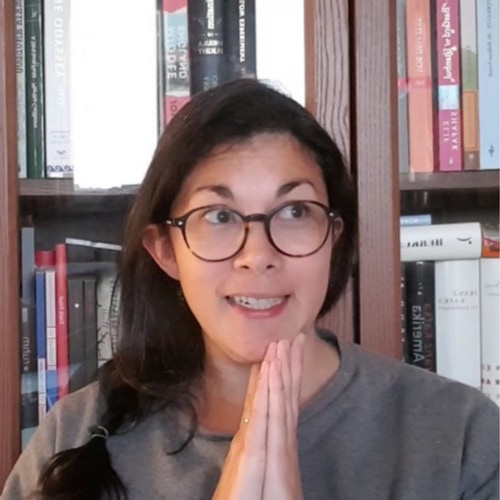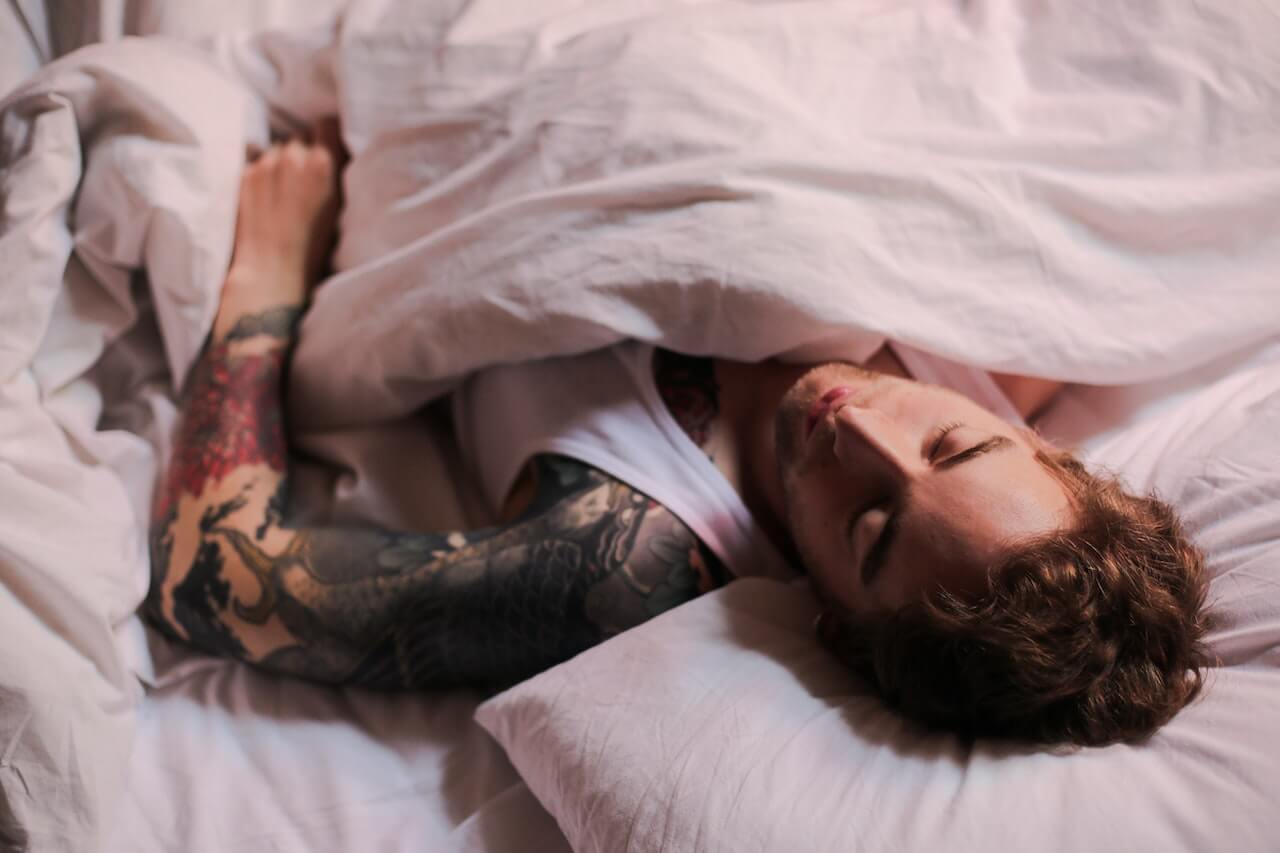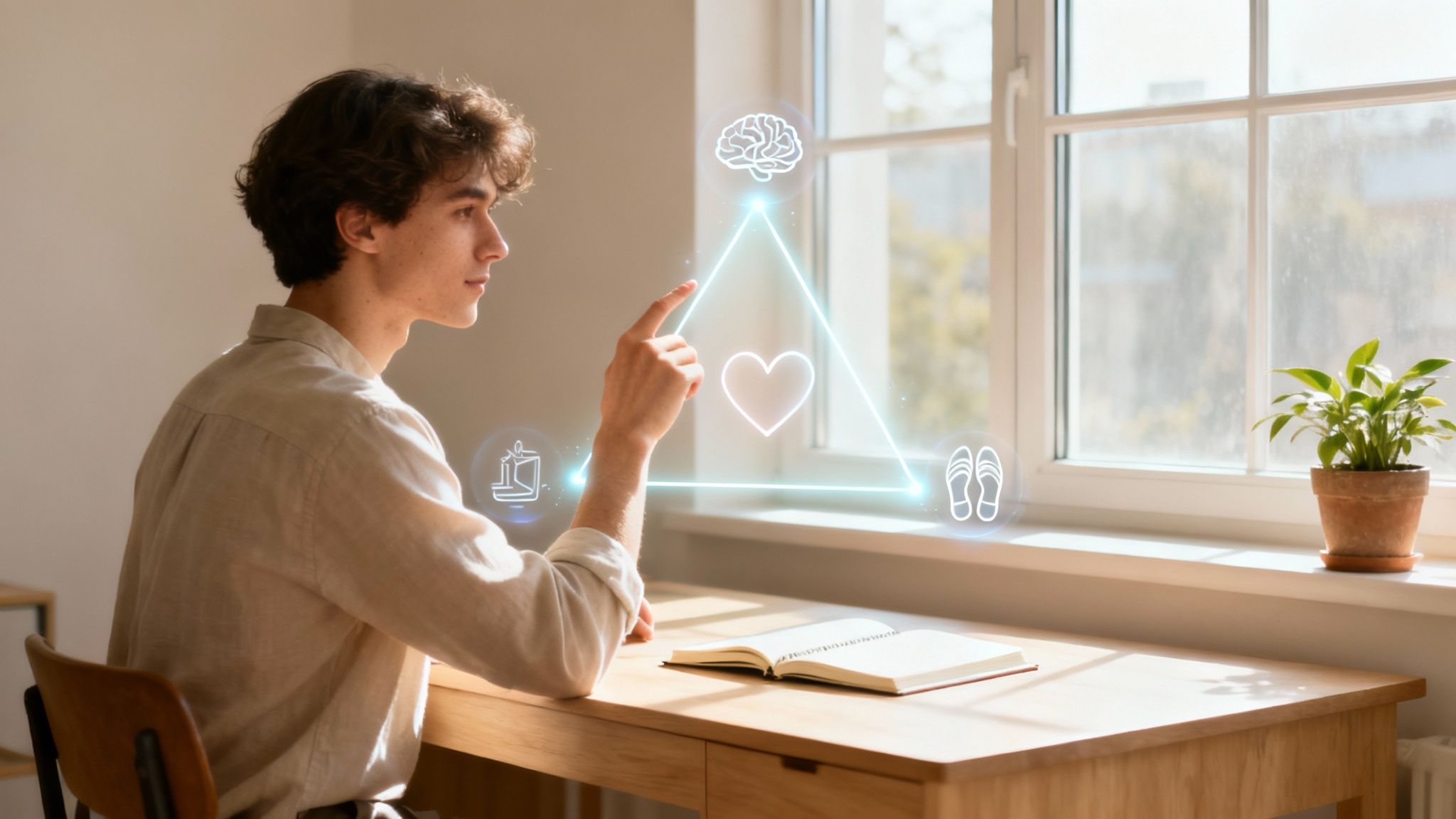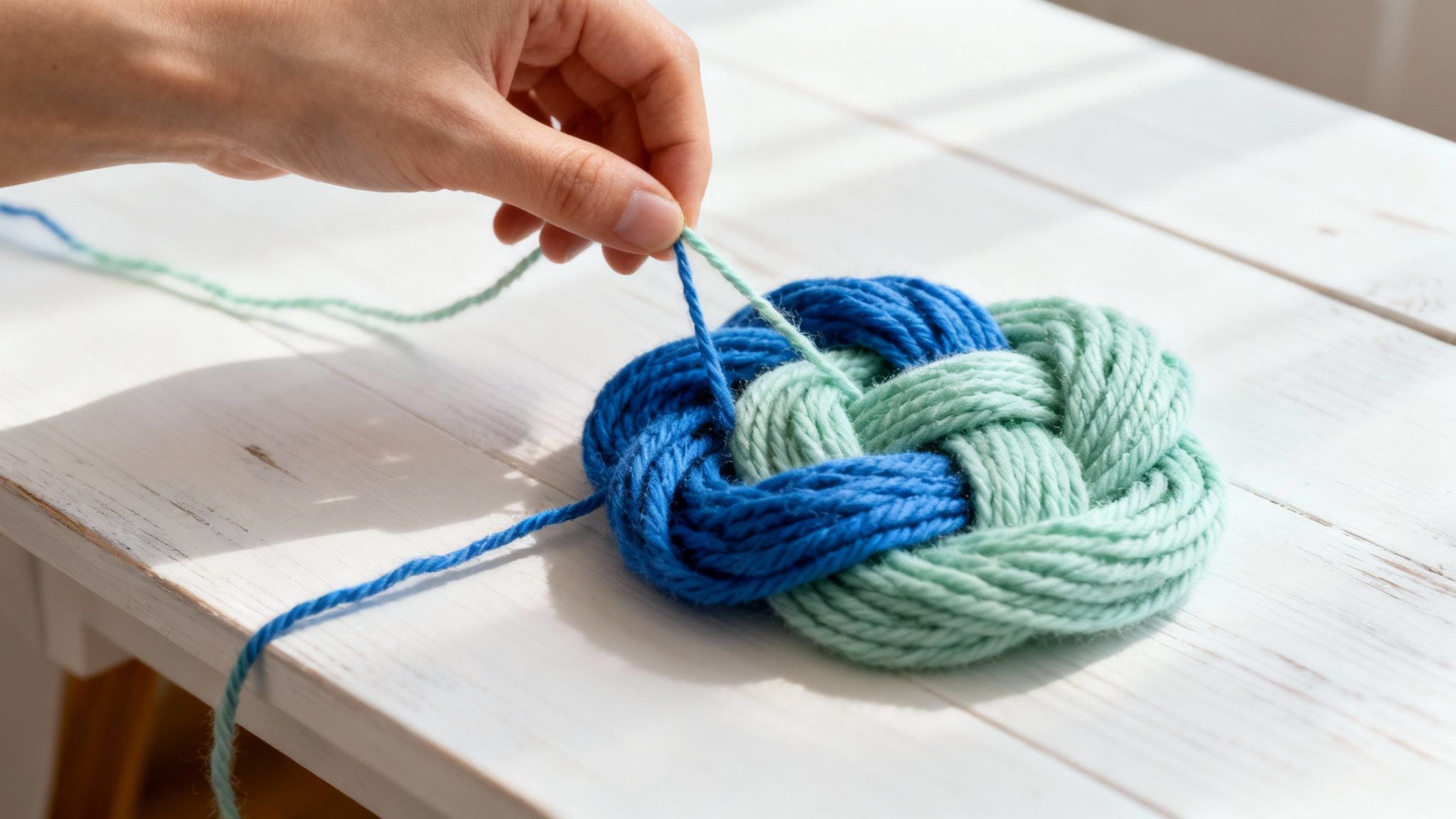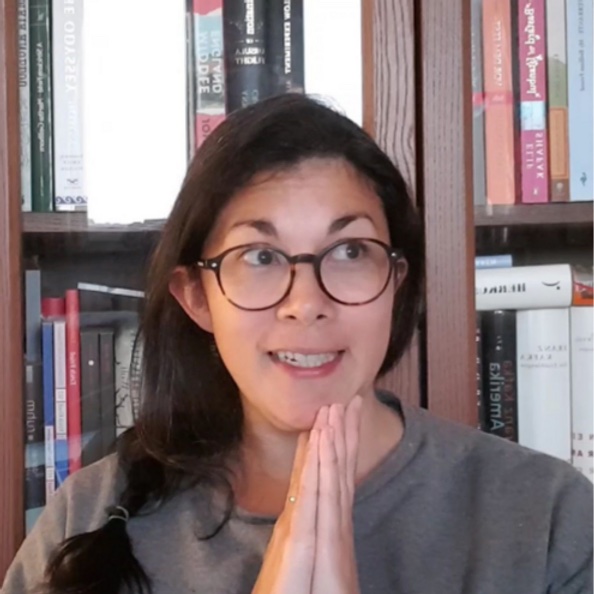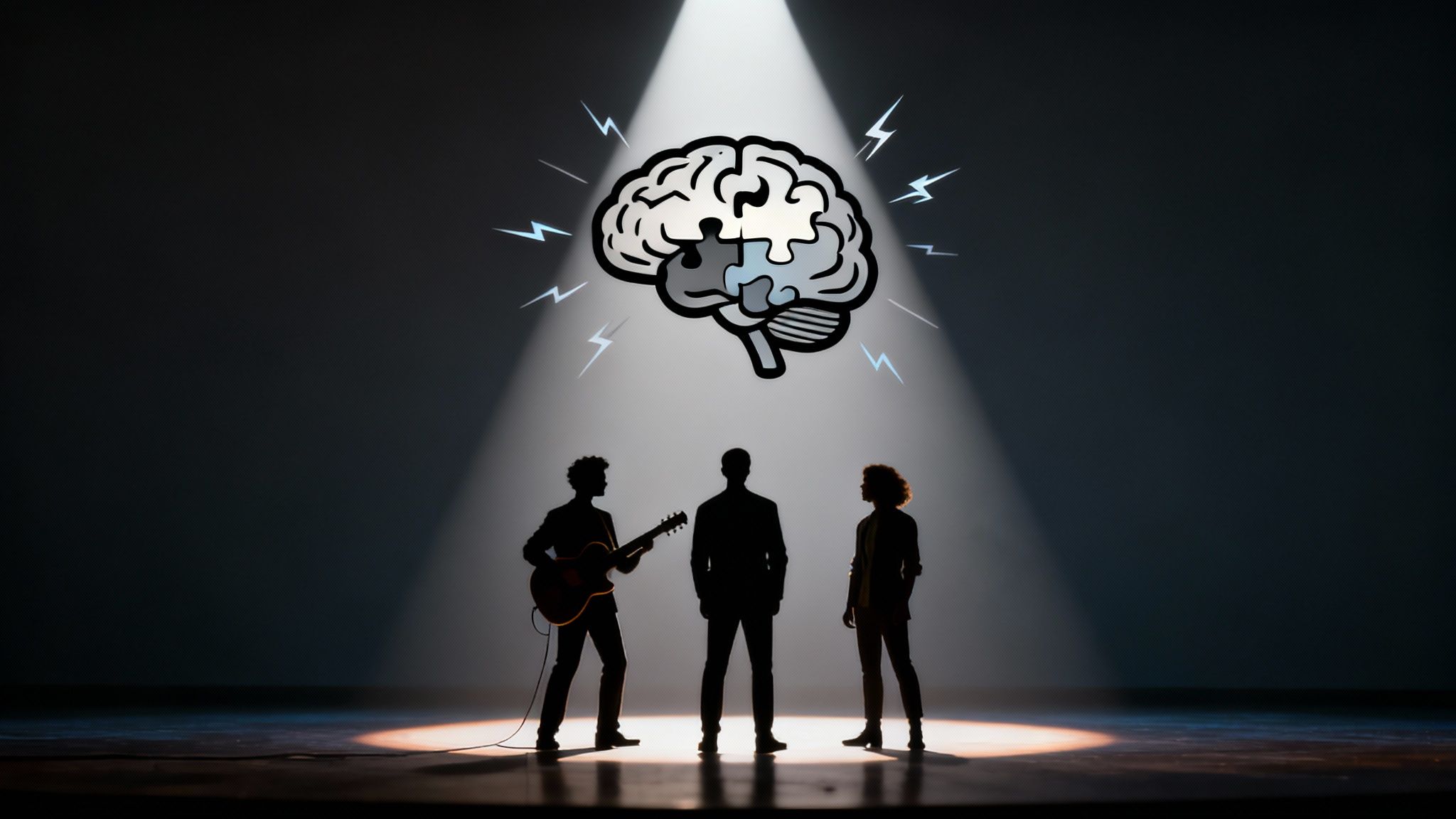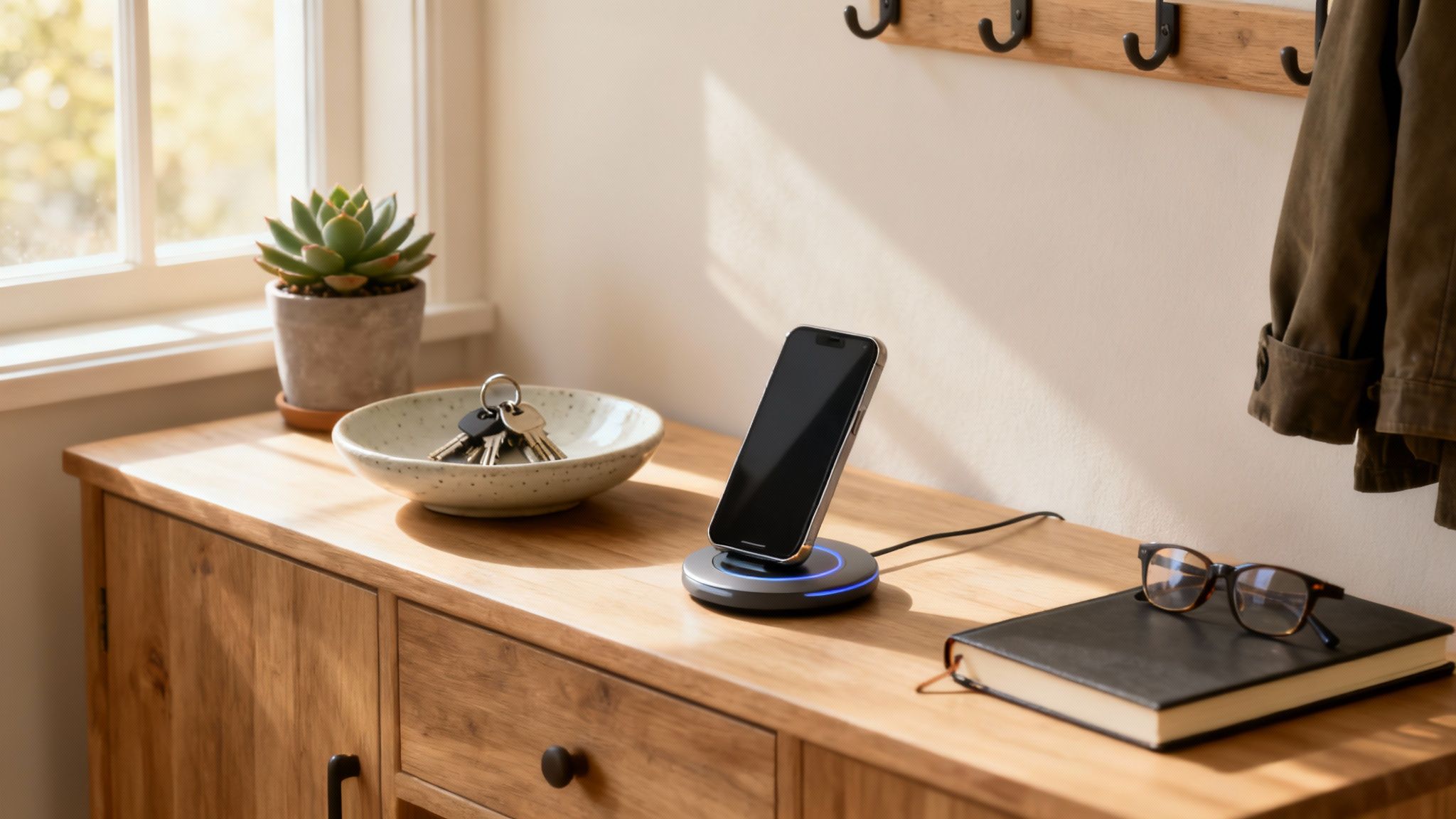I'm writing this draft at 11:20 pm, breaking Rule #3 of the 10-3-2-1-0 routine; rebel me!
So if you struggle with sleep, I suggest not following my lead and implementing these tips for some quality ZzzZzZzs…
But first, what is it about ADHD that makes it so hard to get a good night's sleep? And how can the 10-3-2-1-0 routine help?
Too long; didn't read
- Many ADHDers struggle with sleep problems, either primary ones or due to stimulant medication.
- Both biological and behavioral factors contribute to sleep issues in people with ADHD, including differences in dopamine, noradrenaline, and melatonin regulation, lower impulse control, and difficulties settling down at night.
- The 10-3-2-1-0 routine is a series of steps leading up to bedtime to help relax and prepare for sleep.
- It includes avoiding caffeine, starting the wind-down process early, and engaging in relaxation activities.
The ADHD brain and sleep

Between 25 and 50% of ADHDers have sleep problems.1 Various elements can contribute to these, and the links to ADHD are not well-understood. Researchers have hypothesized about different mechanisms involved, but in most cases, they suggest that biological and behavioral factors are at play.
Primary sleep issues occur comorbidly to ADHD, whereas secondary sleep problems can be caused by stimulant medication.
Common primary sleep disorders include:1
- Insomnia
- Circadian rhythm sleep disorders (CSRDs)
- Delayed sleep phase syndrome (DSPS)
- Restless leg syndrome (RLS)
Biological factors include differences in dopamine, noradrenaline, and melatonin regulation, as well as in the expression of clock genes, or the genes involved in setting and maintaining our biological clocks. Among the behavioral aspects are difficulty settling down at night and impulsivity, making it harder to stick to routines.
We also tend to overcommit, procrastinate, and lose track of time, leading to working long hours and then resisting bedtime in a bout of revenge bedtime procrastination.
Luckily, we can do something about the behavioral part of the sleep equation.
What is the 10-3-2-1-0 routine?
I've always thought of bedtime routines to only concern the 1-2 hours before sleep. But this one starts a whopping ten hours before!
There's more to a good night's sleep than what you do just before hitting the hay. The 10-3-2-1-0 routine can move you closer to relaxation with each step.
How to use the 10-3-2-1-0 routine
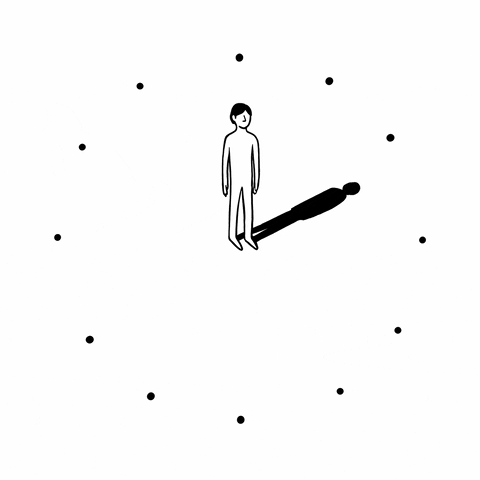
10 hours before bed: avoid caffeine
"WHAT? But caffeine is my elixir of life!" - you as you read this
Well, if you're struggling to sleep, hear me out! The average half-life of caffeine is five hours.2 So, if you have coffee after lunch at around 1 pm, half of the caffeine is still in your system at 6 pm. So as much as you may not want to admit it, this guideline makes sense if you want to be asleep by 11 pm.
You might be thinking, "but I can drink espresso after dinner and fall asleep without any trouble." I'm sorry to burst your bubble, but caffeine still causes sleep fragmentation and significantly decreases sleep efficiency and duration.3,4
3 hours before bed: watch your food intake
Limit your food and drink consumption. You don't necessarily have to fast after that time, but try to have your main meals finished three hours before bed, and only eat light snacks after.
🍸 Bonus tip: Alcohol may make you fall asleep quicker, but it disrupts the second half of sleep, decreasing REM sleep duration and quality.5
2 hours before bed: stop working
It's easy to get wrapped up in work late at night, especially if we're chronic procrastinators and feel we need to make up for it.
But - drawing a boundary between work and private life is vital if you want to wind down from the day's stress.
1 hour before bed: disengage from electronics
Blue light from screens stimulates your brain to think it's daytime and inhibits melatonin production, the main hormone that regulates your sleep patterns.
It's a good idea to limit 'doom scrolling' on social media. While that's never great for our mental health, it's a double-whammy at nighttime when it can cause racing thoughts, the enemy of restful sleep. So instead, use this time for self-care and hygiene tasks, like reading, gentle stretching, or meditation.
👚 Bonus tip: Do 'future-you' a favor and lay out your clothes for tomorrow.
0 hours before bed- Wait, that's not right... Zero snoozes in the morning!
Zero alarm clock snoozes! Yes, you heard that right. (Don't throw anything at me.)
This is incredibly difficult for ADHDers, but it's crucial to stop snoozing your alarm clocks if you want to establish a regular sleep-wake cycle. If you struggle with this, consider downloading alarm apps that make you perform tasks to turn off the sound, like solving math questions or getting out of bed to scan a barcode.

Final thoughts
If you're having trouble sleeping and have ADHD, consider trying the 10-3-2-1-0 routine. This routine involves caffeine avoidance, eating light meals, ceasing work and electronics use at certain times, and engaging in calm activities before bedtime. In addition, this routine can address behavioral factors that might to sleep problems in adults with ADHD.
Following the 10-3-2-1-0 routine may improve your sleep and allow you to wake up feeling more rested and refreshed. Give it a try, and good luck!
Sources
1 Nature and Science of Sleep | Sleep disorders in patients with ADHD: impact and management challenges
2 Encyclopedia of Human Nutrition | Caffeine
3 Journal of Clinical Sleep Medicine (JCSM) | Caffeine Effects on Sleep Taken 0, 3, or 6 Hours before Going to Bed
4 Journal of Clinical Sleep Medicine (JCSM) | Buzzed before bedtime: hidden harms of late day caffeine consumption
5 Alcohol: Clinical and Experimental Research | Sleep Following Alcohol Intoxication in Healthy, Young Adults: Effects of Sex and Family History of Alcoholism

